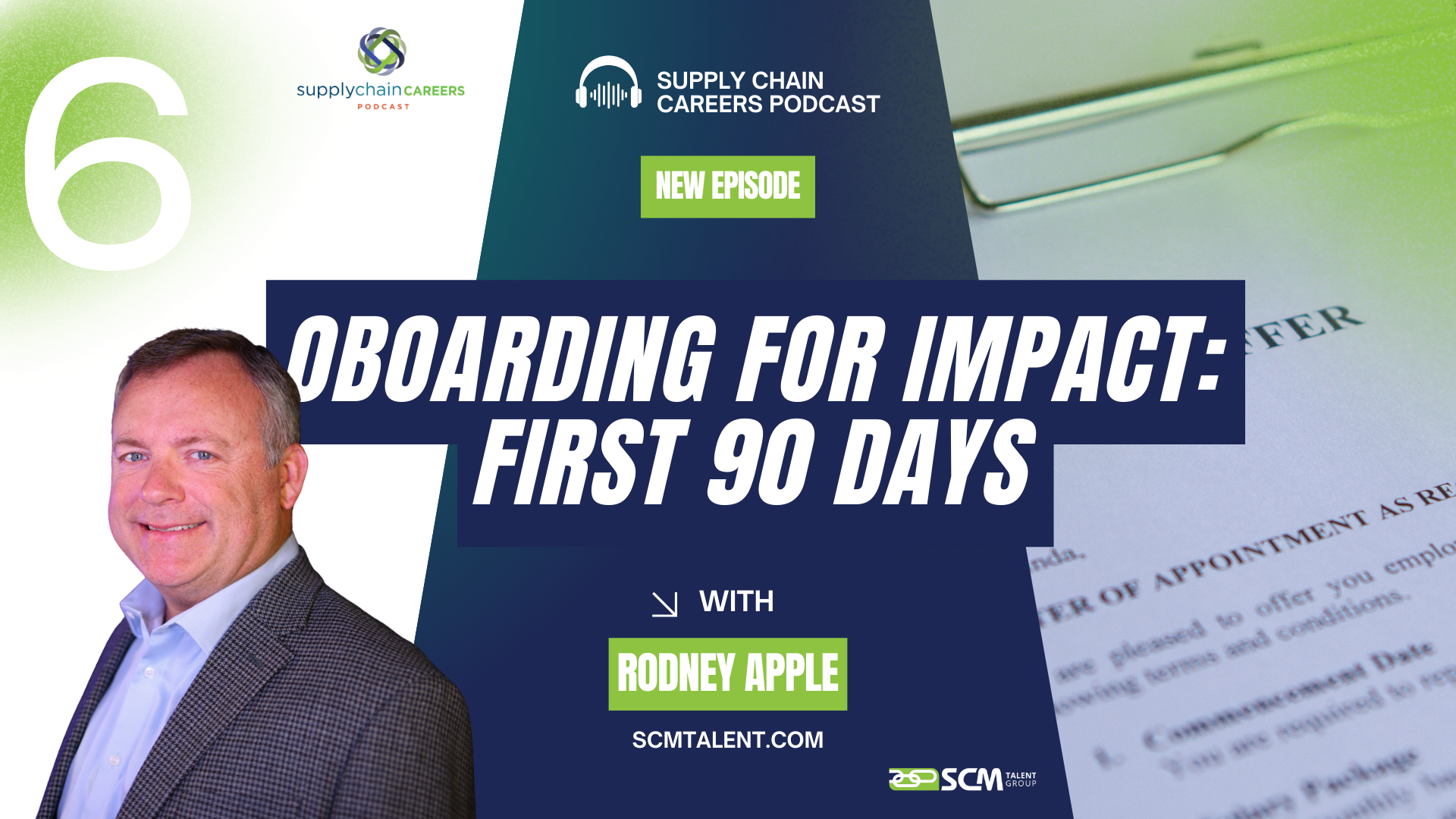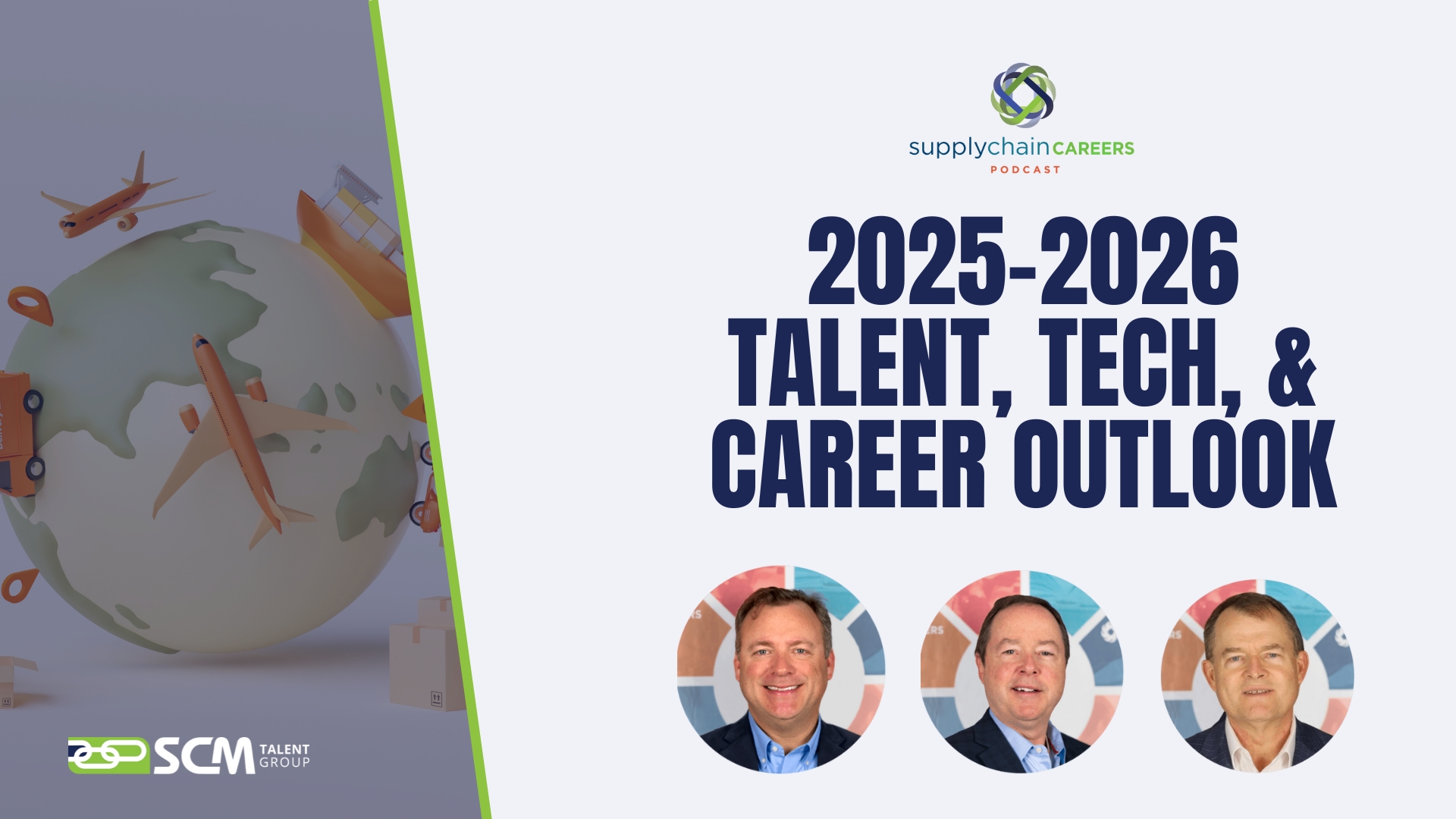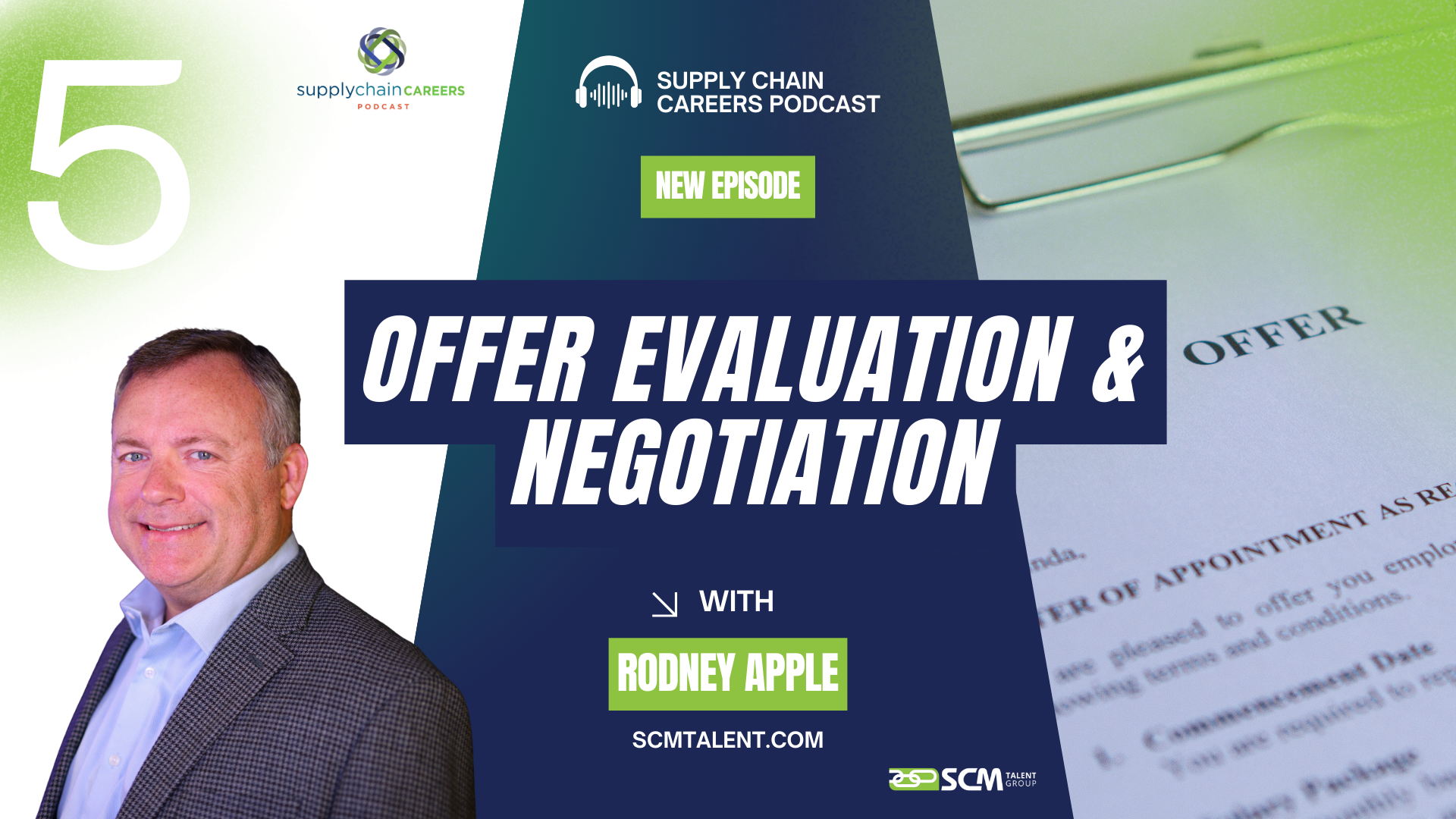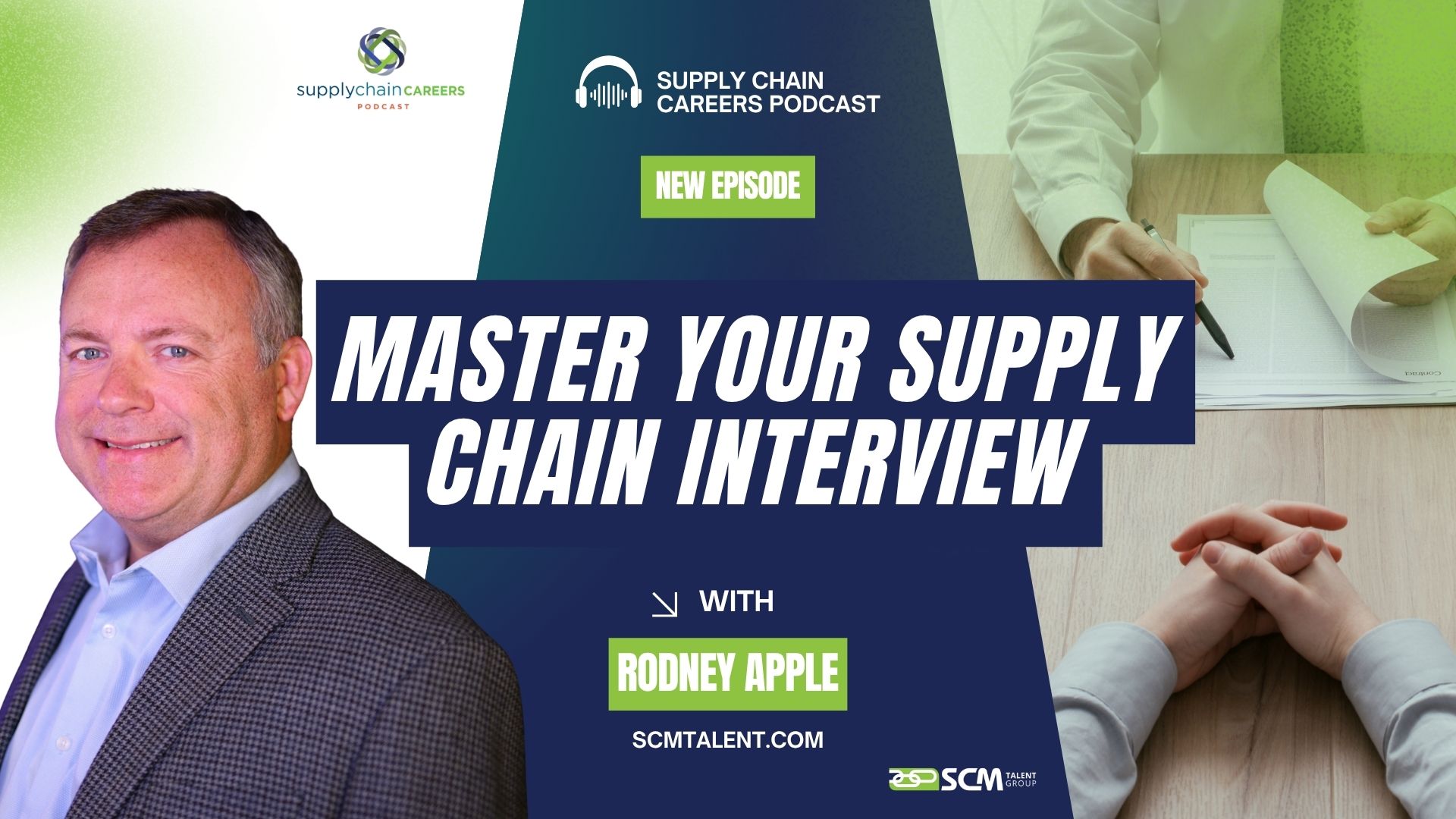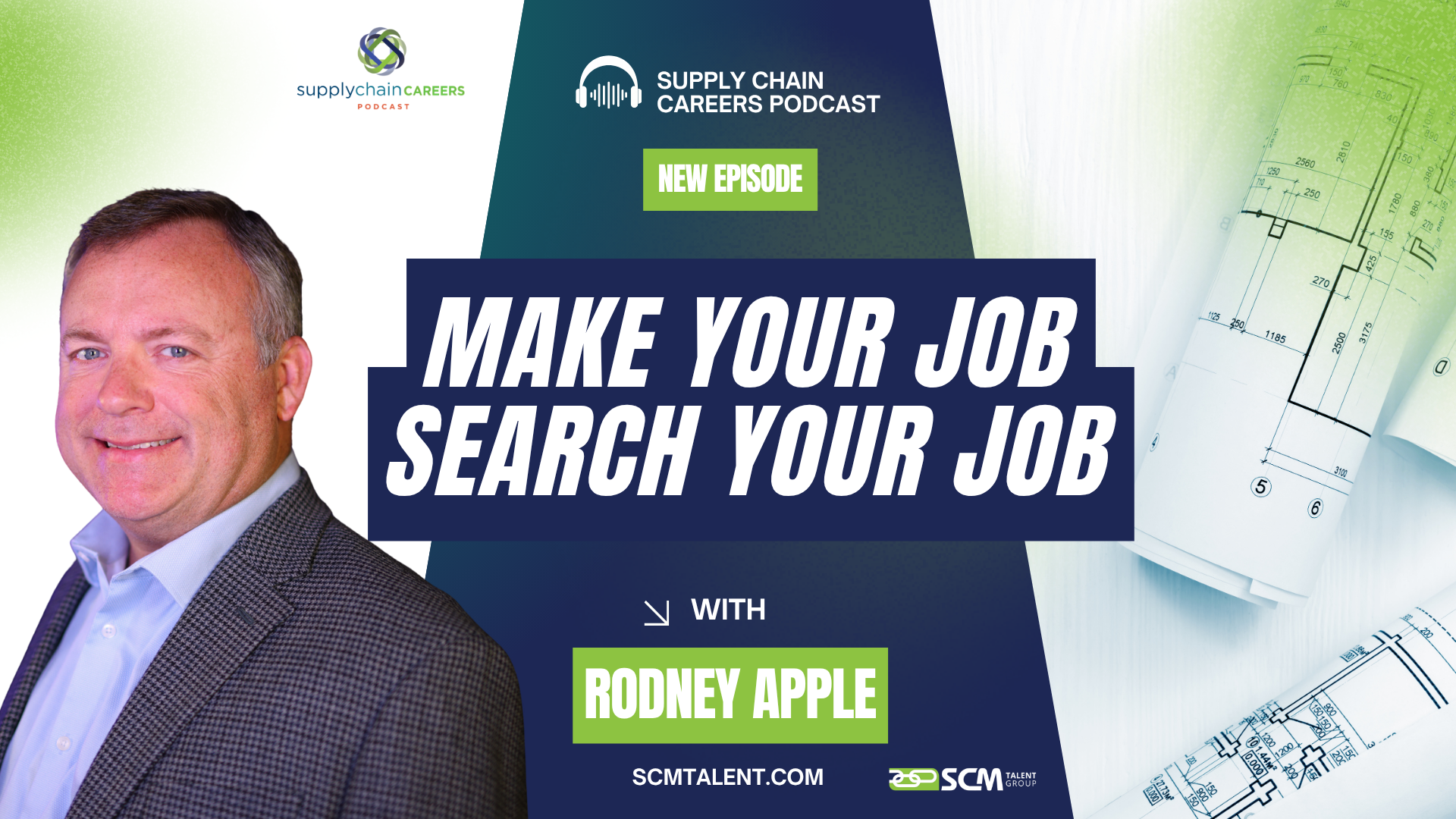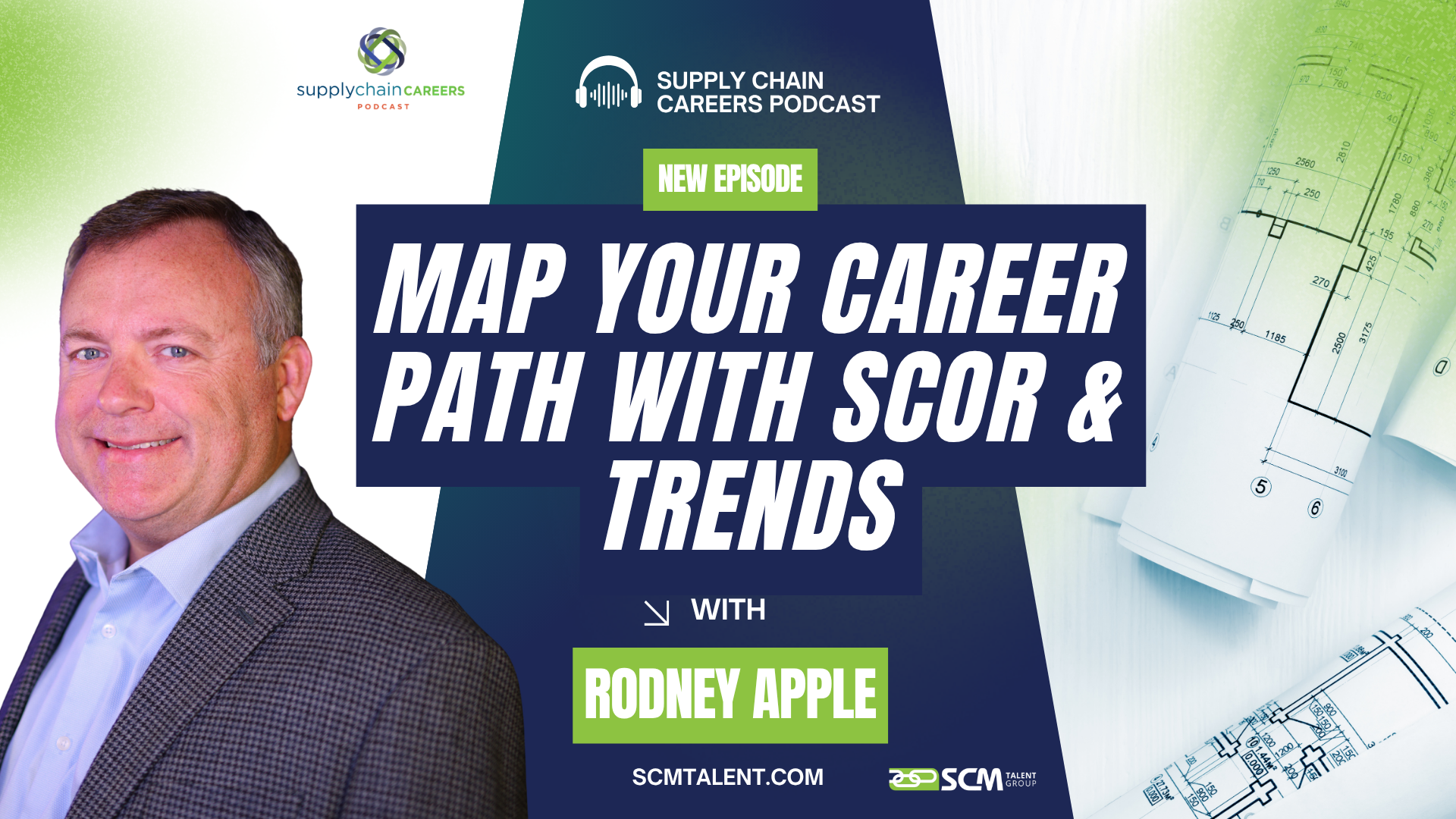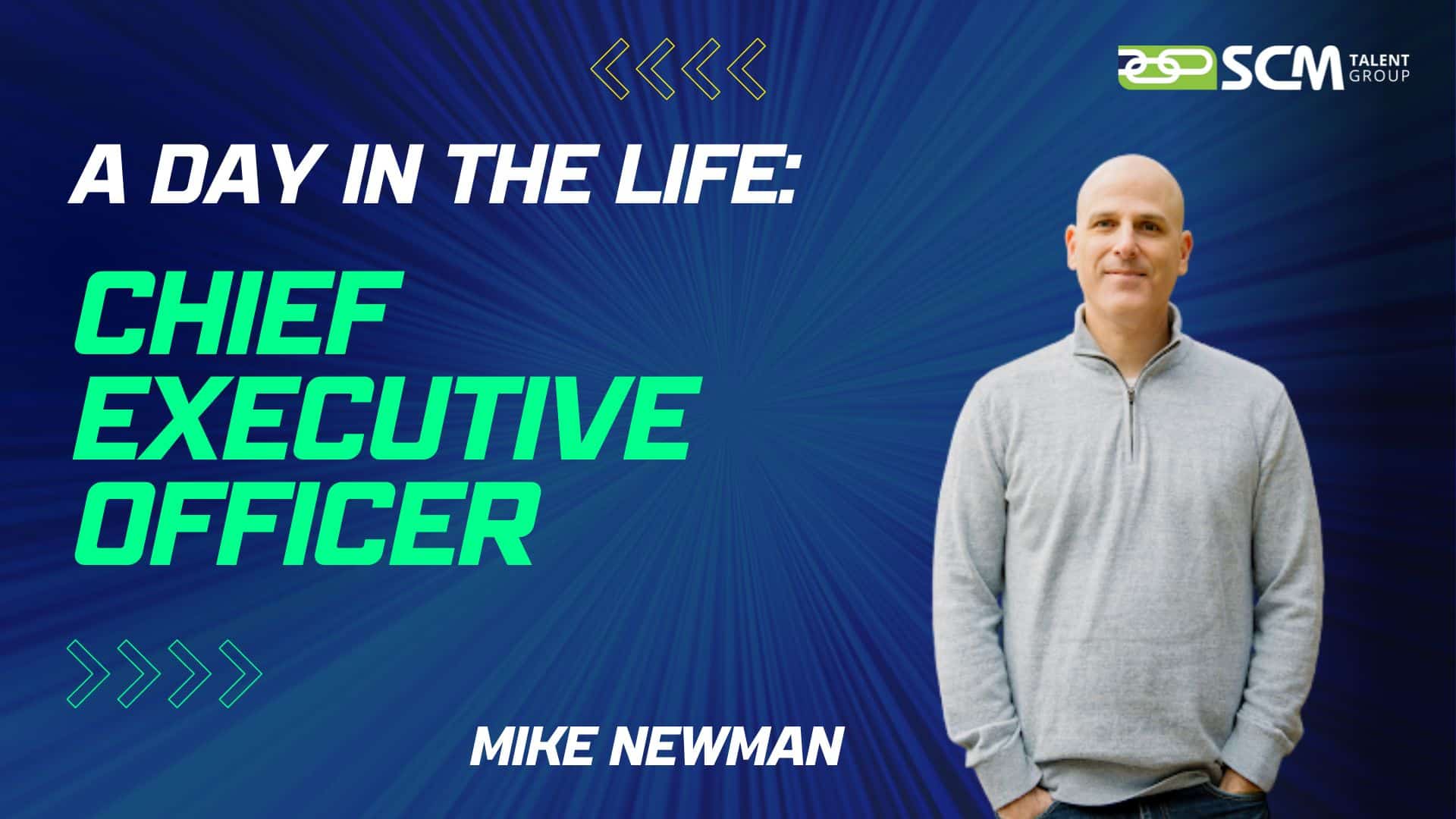
Podcast: A Day in the Life of a CEO – Career Path to Chief Executive Officer
Hosts: Rodney Apple and Mike Ogle
In This Episode:
In this podcast episode, Mike Newman, CEO of Returnity Innovations, shares his career journey and advice for entrepreneurs. Mike has a diverse background, having worked for the Sierra Club, ReCellular, and several startups. He believes that it is important to be present and take whatever you are doing seriously, even if it is not your end goal. He is glad he took the risk of starting his own company, even though it was challenging. He advises entrepreneurs to be prepared for the challenges of entrepreneurship, but to also be confident in their abilities.
Mike’s story is an inspiring one, and his advice is valuable for anyone who is considering starting their own business. He is a true believer in the power of entrepreneurship, and his passion is evident in his words. If you are looking for motivation and guidance, this podcast episode is a great place to start.
Here are some key takeaways from the episode:
- Be present and take whatever you are doing seriously, even if it is not your end goal.
- Be prepared for the challenges of entrepreneurship, but also be confident in your abilities.
- Don’t be afraid to take risks.
- Surround yourself with a strong team.
- Be passionate about what you do.
- Never give up.
Who is Mike Newman?
Mike is the CEO of Brooklyn-based Returnity, which designs, manufactures, and implements reusable packaging and circular logistics systems for customers like Target, PayPal, Vuori, New Balance, Rent the Runway, and more. Returnity’s packaging is used for over 2 million shipments and deliveries a month, and will eliminate over 40 million single-use bags and boxes in 2024.
Prior to Returnity, Mike was VP of Marketing and Business Development for ReCellular, where they built and managed e-waste programs for clients like Verizon, AT&T and Best Buy, saving millions of mobile phones from landfills. Mike is a leader in converting logistics platforms from single-use to reuse, having shared his knowledge with The New York Times, NPR, The Today Show, and more.
[00:01:02] Rodney Apple: Welcome to the supply chain careers podcast. This is the day in the life episode. We’re excited to welcome Mike Newman to the show today. Mike is the chief executive officer of returnity innovations. Mike, welcome to the show. Great to be here.
[00:01:19] Mike Newman: Thanks for having me.
[00:01:20] Rodney Apple: Mike, we’d love to hear about your career journey. What led you to get into this particular area that you’re in and pursue this type of work. We can see that you’ve got a very broad and diverse career have been founders of several companies, but would love to hear your career track.
[00:01:37] Mike Newman: Yeah, it definitely was not something that I. If you’d asked me 10, even 10 years ago, would I be doing what I’m doing now? I wouldn’t have said, I wouldn’t have said yes. So I’m not one of those precocious first graders you ask what are you going to be when you grow up and nailed it perfectly.
It’s been a winding path to be sure. And I think that it’s always been 1 thing led to another thing. And when that thing wasn’t working anymore, there happened to be the next thing. So it’s been really a meander, but 1 that I’ve been really happy to be able to go down.
[00:02:05] Mike Ogle: Mike, as part of these opportunities that end up coming up along the way and the path and the journey, you always need a collection of hard and soft skills that help you get to where you are. So that you see those opportunities and be able to take advantage of them. What has helped you along the way with
[00:02:21] Mike Newman: Those types of skills? I think the thing that’s just always important is to take whatever you’re doing seriously and give it your best, even if it’s not the thing you think is your end goal or your end career choice. Like I remember when I left undergrad, I went to DC for five years and interned for a congressperson and worked for the Sierra Club, the environmental group.
While I was interning, I was waiting tables at Pizzeria Uno’s, which I knew was never my end career goal. But need to make money. I was an intern. So I was waiting tables and I remember somebody saying what are you doing waiting tables here? Like they could tell that I was like maybe taking a different approach than somebody.
And then it’s not a knock at career service people. And it’s a tough job. but they could just see I was bringing a certain energy and focus to it that I was really proud of that. I got that feedback because, just because I was just waiting tables and who knows, It’s still to me was like, when you’re there, you want to be present, you want to give it energy, you want to learn from it. You want to see it as something that’s building towards something more.
And then inevitably when you take that approach I think you find that new opportunities that might be more aligned with what you’re hoping to get to will somehow magically come on your doorstep. So I think one of them is just be present and take it seriously.
And so that’s something that I always try and do. Do the work, work hard, be open be attentive. The sort of subtle part of that is I think something that gets recognized more often than maybe we realize or think about and, even now that I’ve got like a big title at a small company it’s no different and you still got to just work hard and be open to learning and doing the job.
[00:03:55] Mike Ogle: And maybe a small follow up on that, just trying to understand a little bit more about the actual career path and some of the choices that happened along the way to get you there.
[00:04:07] Mike Newman: I’d always wanted to work on sustainability issues from a young age. I remember I was mildly that’s probably too generous.
I was a slightly successful athlete as a kid very slightly successful. I like playing team sports and I was able to get make teams usually. So I had that side. And then I also really loved the outdoors and gravitate towards that. So in high school, I had like back to back classes.
I had Math with the football coach, and I had an environmental science course, and at the time of my high school, they were trying to build some more athletic fields on some grasslands they had on the school property, and the environmental teacher was leading the effort against that because he wanted to preserve that natural area.
And the football coach won the football field. So I had these back to back classes where these two guys who, both were meaningful to me were like, really not realizing I had their class back to back. It wasn’t about me, but they were really going at it. And so that was like a really interesting and important moment for me that kind of helped me appreciate how hard these were and what the challenges were going to be and the practical elements of both sides of this debate as it were, but, I took that I went and got an environmental policy degree as an undergrad.
And that’s when I went to D. C. I knew I wanted to work on sustainability issues. So I spent five years with the Sierra Club, the big environmental advocacy group which was amazing opportunity. Being a young person in D. C. is really a phenomenal place to start your career, I think, because they just throw people who aren’t ready to the deep end for better, for worse.
And you get opportunities and responsibilities you might not otherwise get. You get to meet. People like senators and Congress people and realize they’re just people, which is like a kind of, I think, an important moment as well to demystify what sort of people who are successful are, which is just people.
So I was there for five years. I loved working at the Sierra Club. I was very frustrated working at the Sierra Club because it was an advocacy organization that really struggled with management and execution. And and I needed to find a new path to allow myself to really to grow and succeed.
So when I was there, I loved it. I knew after five years I had to get out. And and that’s when I left to get an MBA and kind of take my career in a new direction.
[00:06:19] Rodney Apple: Yeah, and Mike, we’d love to hear, because you have clearly moved into, working for someone into more roles of founding companies and working for yourself. Could you take us through that journey and how that evolved to the role you’re in today?
[00:06:35] Mike Newman: Yeah, when I was at the Sierra club they had a labor union, surprisingly, which you wouldn’t necessarily think that a sort of progressive organization like that would have a labor union, but they had a lot of problems with management and how they’re, how the organization was structured and I ended up becoming president of that labor union. So, that was my first sort of leadership role, so to speak, I got a feel for what it would be like to be in that kind of position. And I’ve always just felt pretty comfortable with that. I don’t think I had the ambition at that time to go out and start my own thing necessarily, but it was the opportunity to be in leadership roles.
Get comfortable with the idea of being at the sort of face of an organization or a group that was, I think, an important part of my development. So then when I went and did the MBA, and the nice thing about the MBA program, I guess I would say, is that it gives you a way of organizing your business.
Sort of life. There’s secrets to it. You learn formulas and whatever. But at the end of the day, it’s really I think about an organizing principle about how to think about business and how to run a business. And it gives you that structure. So like I had some of this leadership experience.
I had this sort of business structure. It gave me confidence to just go and feel comfortable being put in whatever role I happen to be put into. Again, no master plan here. I was wrapping up the program trying to figure out how do I apply all those background skills work on my interests around sustainability.
And I had this opportunity to work what at the time was this fast growing E waste company based out of Michigan called ReCellular, which was running most of the wireless industries take back and reuse and recycling programs for mobile phones. That felt like a very practical business that I felt comfortable joining without a lot of business background, but now I have this newly minted MBA and I was ready to apply what I’d learned there.
And then also integrate the sustainability background I had. I ended up running marketing business development for them. We signed Best Buy and Walmart and AT& T and Verizon and Sprint and the whole industry. So we became their behind the scenes management. And that was eight years.
So you have these like inflection points, that inflection point lasted eight years, which it’s pretty long time. But it was eight years of learning, getting comfortable in the business context understanding what those skills were that you needed to run organizations, understanding how companies grow, particularly in those early stages of business growth to go from a 10 million company to a 60 million company.
I now know is very hard because of what it means from an organizational standpoint. Less about finding markets and more about like, how do you literally build the people and the infrastructure and bureaucracy and, find new office space and all that stuff. So I just was very fortunate.
Like I got in a company that was relatively small. I was able to be a part of it, get big, learn all that there comes from that. And then when I was ready to move on, it gave me that final grounding I thought I needed to go out and start my own stuff.
[00:09:31] Rodney Apple: Wonderful, I’ve done some work in that industry. It’s a little bit these days wild west with the returns and selling the, digital devices on the secondary market.
[00:09:42] Mike Newman: Oh, it’s always been. It’s always been a wild west. That is for sure. I think that used goods marketplaces don’t necessarily get the brightest light.
So sometimes can attract people organizations that thrive in that kind of environment. Yeah, it’s a interesting world to try and operate in.
[00:09:58] Rodney Apple: Exactly. So that takes us up to a very diverse background, you’ve got your business degree now, sustainability, you’ve worked for 5 to 6 fold leading the commercial side.
And it looks like this is when you moved up the ranks into more general management. Executive roles and then found it’s a few different companies. So we’d love to hear that journey. And really what do you feel like prepared you. To elevate into the general management, founder startup space.
[00:010:28] Mike Newman: Yeah, startup founders are typically wired a bit different. And I put myself in that category which is both a wonderful thing to be able to tackle and also an insane thing you really have to like embody both of those things. You have to have this sort of inappropriate confidence and willing to just tackle each day and not too much of that stress that comes with it. But then survive because it’s irrational in many ways to think that you’re going to start your own business and your own startup and somehow make it through. And I don’t know now when I think about that moment where I’m like I finished eight years every cellular.
I was really tired and burnt out from that space. I knew I wanted to try something new. I have this idea that percolated in my head. I just moved to New York where my wife is from, so I had this geographical change. I didn’t have my network. I was in a new city.
I moved there from Michigan. I didn’t know exactly. I knew I didn’t want to do, use phones anymore. That was a space I was ready to move on from. So it seemed like a good idea. In retrospect, I’m like, why did I think that was a good idea? I don’t know why I thought it was a good idea. It just seemed like a good idea.
Now, you jump forward 10 years and I’m really glad I did it because I learned so much from making that leap. But I now realize I didn’t know anything about what I was doing despite thinking I knew what I was doing. And but I don’t know that there’s any other way to do it. I had learned the formal schooling at the MBA program.
I learned on the job and this growth company, I had mentors, and advisors, and friends in startup world. And you hear what they say and you intellectually can get it, but to become an entrepreneur, you just have to get your feet wet and you just have to learn on the job in a lot of ways and be humbled by that.
And I got real humbled real fast but if you can persevere through that, you really do gain skills. And confidence and comfort to then apply it and may not be that first thing you try, which certainly was the case for me or even necessarily the second one, but, like you can find your path through it because you learn from your mistakes and you learn from your peers.
And that was really it. I, again, if I hadn’t had this move with my wife to New York, who works in finance and it just, this is where it made sense for us to be. I don’t know that I would have tried that. And it wasn’t like I had been sitting there for five years, just counting down the moments until I was ready to start my own company.
It hadn’t been the thing I thought I was going to do. And I come from a family of entrepreneurs and my dad. Basically never had a boss. He always started since high school. He was always starting his own thing. There was no like dinner table talk about the family business. Like, when are you going to join it?
That was not the vision for the family. And yet somehow here, 10, 15 years in the workplace, all of a sudden there it was. It was a surprise, but in retrospect, I’m so glad I did it.
[00:13:14] Mike Ogle: Certainly where preparation meets opportunity, right? That’s the old phrase.
[00:13:19] Mike Newman: Yeah, and there’s really a lot to it, you can read all about it in textbooks, you can watch Shark Tank, you can do all those things, you’re just not going to learn until you do it. You need that innate understanding of what the pressures are, what the cycles are like.
And what ownership feels as an entrepreneur, which I think is something that is very hard to understand until you’re in it. The thing I tell entrepreneurs now is because I’ll hear I’ll meet new, people are thinking starting businesses for the first time and they’ll say, yeah, I feel like I’ll give it six months or a year.
I’ll see how it goes. And I tell him like that very rarely works because once you’re six months into a year, you probably took someone else’s money and you feel some responsibility to them and you don’t want to let them down. So you’re going to keep rolling and you feel some responsibility to your family because they gave you this window to try this and you don’t want to let them down and failure stinks and it’s hard.
And you’re probably not going to quit after six months or a year, even if you probably should. But you could tell somebody that all day long on day 1 and I’m like, I appreciate that. But, and then when you’re in it oh, you know what? You’re right. It’s very hard to understand these things until you really live in them.
[00:14:23] Rodney Apple: I’ll say, Amen. Just having done it myself and failed the 1st time and tried it again. You got if I got to go on, but sometimes you have to fail forward to really learn what you need to do to course, correct the next time around.
[00:15:04] Mike Ogle: And Mike, on the topic of being able to manage, and thinking about the different kinds of stakeholders that you have to deal with at that point, so you talked about taking other people’s money, you’ve been below the CEO level and now being at that CEO level, there’s a lot of different kinds of interactions and people that you work with. So can you tell us a little bit about both internal and external kinds of relationships that you have to maintain?
[00:15:30] Mike Newman: Yeah, I think that it’s a difficult position because you have those internal external stakeholders. They look for different things from you. They expect different things from you.
With your team, obviously, they want you to be inspirational. They want to know what they’re supposed to be doing and where, what, where are we all rowing towards, you need to give them that vision and that direction. I think the instinct in a lot of senior leaders is to keep things close to the vessel, or maybe not as much as it used to be and feel like too much transparency is dangerous.
It’s not really my style. I feel like particularly in a smaller company. I just think that it’s not just like, how are we doing financially? But also, how am I doing? It’s a high stress environment. There’s a lot of failure in startup land. And, I think for me, from an internal standpoint, I’ve just learned that I do best when I’m very open with the team about, look, my kid woke me up at three in the morning. I’m real tired today. I don’t know if I’m being my best rather than them wondering why it might be a little bit snippy that day, whereas I think when I was coming up, the boss was snippy that day, like, you didn’t know what was going on with their kid.
That was not something that was brought to the product of the work environment. You don’t want to overshare, but I feel like that kind of transparency, like where we’re at as a company now, we’re having a good year. I’m not sure next year is going to be good. This conversation point, I don’t know yet how good next year is going to be.
And I know that if it isn’t good, here’s some of the consequences I’m going to tell my team what happens if we can’t get better. There’s no reason to hide that stuff. I want them to know today where we’re going to be. So the internal management for me, a lot of that transparency and openness. I tend to follow that same rule with external stakeholders, though it’s even harder there particularly because external stakeholders usually want to tell you what you’re doing right or wrong, whether they deserve to or not, and that’s really hard particularly with investors.
Investors… Really love telling you what your business model isn’t good at or what you’re not executing that you should without really knowing much about your business. And managing that environment, particularly in startup world, where you’re raising money from venture capitalists or highly successful, angel investors or whoever it might be.
And you’re meeting lots of people and they just spent three minutes trying to learn what your business is. And then they’ll spend 20 telling you everything you’re doing right or wrong. It’s real hard on the ego, and it’s really hard to navigate as a leader. What am I supposed to do here?
I’m, I have a million meetings with people who don’t know much about me or my company, or potential clients who don’t know much about me or my company. What is the right relationship? Should I be just smiling and agreeing, and then go on doing something else? Should I be confronting them?
It’s a hard space to live in. I don’t know that I mastered it yet. Other than I think you just have to stay true to what makes sense to you and what feels right to you. And it’s really, I always say you can meet with 10 venture capitalists. I get 12 ideas about what you should be doing with your business and they’ll all be different.
So like you can either make 12 changes or you just say no, I’ve got my vision. I know what I want to do as a leader in my, with my company. If you’re on board with it, great. If not, I’m gonna go talk to the next person. But that’s easy to say real hard to do because these are, when you’re in the room with people.
The external stuff is always harder for me just to find that right line to walk and stay true to yourself.
[00:18:44] Rodney Apple: Mike now you’ve what I would say, based on your company description at returnity innovations, you moved into this, packaging shipping logistics space that we’ve been in for quite some time 2 things. Could you give us just an overview of what returnity innovations does what kind of services or products they offer?
And then as the CEO would love to hear just high level overview of, core objectives of your role as the senior most leader. And then, what do you enjoy most about that job?
[00:19:15] Mike Newman: Return to the helps retailers move from single use to reasonable packaging. So we work on shipping delivery, packaging for clients, everyone from rent the runway to do balance and.
Target and a broad brush of brick and mortar retailers who are looking for something that can be certainly lighter on the planet. We use enough cardboard in the US every year to pave a cardboard road from New York to LA. In fact, it’s 1 mile wide 3 times. So 3, 1 mile road cardboard roads back.
So it’s a huge. Amount of packaging waste and we help retailers figure out a less impactful way to do it in a way that can also save them money. So it’s a big market and a big challenge and that makes it fun because we’re trying something new and it makes it challenging because we’re trying something new.
That’s what the business is working on. My role, I think, as a CEO, you gotta wear a lot of hats, particularly in a smaller company. So I still get my hands very dirty. Including like taking samples up to FedEx to ship out and things like that. There’s no hierarchy that way.
I think that, fundraising, managing investors, hiring, a lot of speaking opportunities to get the word out, is fun and really important. So we’re going to conferences and things like that. But I think a big part of the CEO of a small company like this, particularly when you’re trying to create a new market and selling a new product or service is establishing credibility with your customers in this business.
And in my context, it’s B to B sales. If I’m talking to target and they’re going to put their trust in some little company out of Brooklyn, like they need to feel like they can trust that a little bit and they can hold the product and it could feel real and they can test it and it can do well in testing. But, if they don’t feel like they have confidence in the business that they can handle target, because the target is big and we are not, then they’re not going to do it.
And so I think a big part of my role as CEO, ultimately, aside from people management and all those other sort of. Very specific and standard day to day business roles is helping the business get credibility in our marketplace. As starting with me and the CEO role and feeling like these clients going to have confidence in us and the team to execute what they’re going to write a check to us to do, and that’s probably half my day.
It feels like every day. It’s just strutting out and talking and, giving people comfort and confidence in who we are and what we’re doing.
[00:21:39] Mike Ogle: So in the question. , I think there were 3 things that were inside there, but being able to concentrate on those factors that you like the most out of your position and then the things that are also the major challenges.
[00:21:52] Mike Newman: I think one of the fun things about being a smaller company is that every day is a new day, like you are showing up and figuring out what you’re doing that day, sometimes more often than you wish, but in general it’s never boring being in a small company.
And, my wife who is really successful, smart, super talented. She’s always worked in these huge organizations, big banks and things like that. And she took a break and worked with me for a year in one of my previous startups. And by the end of the year, we’re still married. So they all worked out by that, by the end of the year, she’s I can’t do this anymore.
Like I’m used to planning and structure and organization and knowing what our goals are for the quarter and the year. And like startup land is crazy. I can’t do it anymore and I don’t blame her. Like it’s just, she’s wired for that. I’m wired for let’s go. What do we got today? And that’s fun for me.
It’s also hard though, right? It is so hard to shut down at the end of the day. We just, this month we’ve gotten into a pilot agreement with two of the 10 biggest retailers in the country on really exciting programs.
And you’d think I’d be over the moon. I’m thinking about the next hill already. Like, it’s very hard for me to celebrate what should be a huge celebration, like really big milestone for us, the business. And I’m already thinking about the next thing and that’s not great either. So I think that stress of a small company and being in a leadership position where, you know, that next hill you, you always know the next hill you got to climb and you never know exactly how you’re going to get there.
That’s. Exciting and hard. And it’s so it’s both things at once and it’s very difficult. So for me anyways to get through that challenge.
[00:23:28] Rodney Apple: Mike, when you get to the CEO level, where can you go from there when you think about career paths or even, what’s the next move?
[00:23:37] Mike Newman: Yeah, a lot of the CEOs I know from smaller growth businesses, when they get acquired, then they face a very specific thing happens almost always, which is that they know that, whatever that bigger company is that just swallowed them up, they’re going to be there for a couple of years. Because that’s how long they got to be there to get their money out. So they’re in for a couple of years. And I would say nine times out of 10, you ask them, when is your earn out date, and they will tell you to the millisecond.
They know exactly when their earn out time is because they don’t like it. It’s, they went from being in charge to now being a peon. They went from flexibility and innovation to just being, cog in a big machine. And I think it is unique when somebody can get swallowed up by a big organization and then learn to enjoy and start over in essence and try and climb that ladder to some sort of senior position. And in general, I think if you’re CEO of a small company, it gets bought by a big company. You could say okay, now maybe your division head or you’re in charge of however they structure your business from their large organization, and you can start working your way back up.
But I think it’s pretty rare. Usually they’re supporting the people who have been at that organization, from day 1 more than these outside people coming in who now have to establish relationships outside of their business line and establish their credibility.
It’s tough. So it’s not a path that I see happens too often. If you’re in a CEO role in a small business and you find an exit that, ideally makes you a good amount of money that’s exciting and gives you some flexibility, but that flexibility is usually going to be depending on how big that check was.
Maybe now you’re an investor because you learned a lot. Maybe you’re sitting on boards to, help share your knowledge. Maybe you’re starting your next thing. I don’t know who has energy for that, but good on you. If you do restart, people do it. It’s tough and now you’re in a different phase in your life.
So I think in general, like you’re going to apply all that stuff you learn. But probably you’re going to do it in a different way, as an advisor or in an academic setting or whatever that might be. The people I know who have been CEOs gone through all that stress, gone to some sort of successful exit point, they really enjoy it.
It’s a lot of fun for them to not have that stress on their head, but still be able to share and help. And there’s a camaraderie amongst entrepreneurs that I think is genuine. I aspire to that.
[00:25:55] Rodney Apple: Yeah, that’s a really good point. As I’ve worked on early stage startup, like president roles. And, you have to find the person that’s ready for it because you try to get the person that’s already done it.
They’re like, I don’t think I have it in me to go back and do that again. Is what I have found at least. Maybe they’ll do 1 more if they’re at the right age, but, 2 or 3 of those and you’ve got a lot of gray hair. Or it sheds off, right?
[00:26:16] Mike Newman: Or no hair. Yeah. No hair. Yeah.
[00:26:22] Mike Ogle: As you’ve gone through all these different roles and different restarts in a way and hit the CEO point, if somebody said, I want to be CEO of a smaller company, 1 of these days what kind of advice would you provide if you think about sitting in front of a group of professionals and trying to tell them, hey, here’s what I’ve learned along the way.
[00:26:42] Mike Newman: I think that it is often less about technical skills or brilliant business model ideas and more about the softer skills, it’s a cliche that I think is almost always true, which is investors tend to invest in people, not in teams and not business ideas.
And, as unique as you think your idea is it usually isn’t, and that’s not a criticism. It’s this is hard stuff to do, and people will try it, and you can be too early, and five years later, still be too early. And it’s usually about you as an individual and as a leader, and your ability to communicate clearly and give people trust in you to, whether that’s a client that’s going to hire you or an employee that’s going to sign up to work for you, an investor that’s going to write you a check.
It’s usually not your grand vision. It’s usually you as that individual and as a leader. So I think that if you aspire to be a leader, you should invest in leading and getting comfortable leading, getting comfortable speaking in front of groups, and doing that part of the job. Then studying technical textbooks and writing a hundred page business plans, that stuff’s helpful, but if you can’t, give people confidence to get to work with you you’re gonna have a real hard path forward. It doesn’t sound that softer It’s harder to understand how you necessarily connect all those dots. You can you know, you can read textbooks and get certifications like that’s a regimented process which for some people it’s easier, but I think the soft side it’s just absolutely critical.
[00:28:10] Rodney Apple: So Mike, as we wrap up here could you tell us where our audience can learn more about your company where they can go? We know sustainability and the circular economy is huge right now, and especially in supply chain logistics. So could you give us a website and where they can find more information to learn more about your product services?
[00:28:30] Mike Newman: Absolutely. We’re at returnity. co. So that’s R E T U R N I T Y. So eternity with an R on the front and dot C O and please reach out. I always love talking to entrepreneurs. Anyone wants to get in touch, just send a note through the website and they’ll get to me. We love talking about what we do.
[00:28:50] Rodney Apple: All right. Thank you, Mike.
[00:28:54] Mike Ogle: Hey Mike, it was great to have you with us today to share your journey and the day in the life. It was great to have you with us.
[00:28:59] Mike Newman: Thank you for having me. A lot of fun. Appreciate it.
Need help hiring a Chief Executive Officer?
Connect with the executive recruiters at SCM Talent Group today to elevate your team’s potential and secure the talent your organization needs for future success!

Check Out Other Podcast Episodes:
Onboarding for Impact: Optimizing the First 90 Days on the Job
Rodney Apple2026-01-29T15:59:05+00:00January 29, 2026|
The job offer is just the beginning. You need to know what questions to ask so that you can properly evaluate and negotiate your offer.
2025 to 2026 Supply Chain Talent, Technology, and Career Outlook
Rodney Apple2025-12-17T20:48:24+00:00December 17, 2025|
The job offer is just the beginning. You need to know what questions to ask so that you can properly evaluate and negotiate your offer.
Offer Evaluation and Negotiation: Critical Guidance for Landing the Best Offer
Rodney Apple2025-12-04T20:24:36+00:00December 4, 2025|
The job offer is just the beginning. You need to know what questions to ask so that you can properly evaluate and negotiate your offer.
Master Your Supply Chain Interview: How To Impress Employers
Brian Kennedy2025-11-13T14:30:18+00:00November 13, 2025|
Learn how to prepare for supply chain interviews from industry experts. Discover proven strategies to communicate your value, answer tough questions, and land the offer in this episode of the Supply Chain Career Catalyst podcast by SCM Talent Group.
Avoid the Spray-and-Pray: How to Execute a Supply Chain Job Search Strategy
Rodney Apple2025-11-13T14:31:04+00:00October 30, 2025|
Your supply chain job search strategy should involve making your job search your job. A clearly defined and planned process always wins.
Map Your Supply Chain Career: Functions, Industries, Company Types, and Trends
Rodney Apple2025-11-13T14:31:16+00:00September 25, 2025|
[...]
